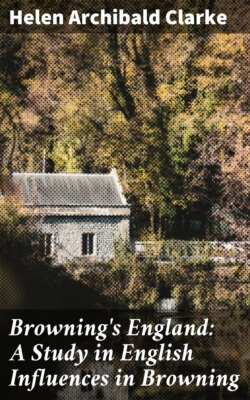Читать книгу Browning's England: A Study in English Influences in Browning - Helen Archibald Clarke - Страница 25
На сайте Литреса книга снята с продажи.
II
ОглавлениеWe shall march prospering—not thro' his presence
Songs may inspirit us—not from his lyre;
Deeds will be done—while he boasts his quiescence,
Still bidding crouch whom the rest bade aspire:
Blot out his name, then, record one lost soul more,
One task more declined, one more footpath untrod,
One more devil's-triumph and sorrow for angels,
One wrong more to man, one more insult to God!
Life's night begins: let him never come back to us!
There would be doubt, hesitation and pain,
Forced praise on our part—the glimmer of twilight,
Never glad confident morning again!
Best fight on well, for we taught him—strike gallantly,
Menace our hearts ere we master his own;
Then let him receive the new knowledge and wait us,
Pardoned in heaven, the first by the throne!
Whether an artist is justified in taking the most doubtful feature of his model's physiognomy and building up from it a repellent portrait is question for debate, especially when he admits its incompleteness. But we16 may balance against this incompleteness, the fine fire of enthusiasm for the "cause" in the poem, and the fact that Wordsworth has not been at all harmed by it. The worst that has happened is the raising in our minds of a question touching Browning's good taste.
Just here it will be interesting to speak of a bit of purely personal expression on the subject of Browning's known liberal standpoint, written by him in answer to the question propounded to a number of English men of letters and printed together with other replies in a volume edited by Andrew Reid in 1885.
